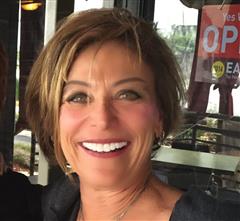
One of the most famous books around, with over 18 million copies in print, and that holds the title as the longest running "New York Times" bestseller ever, is What to Expect When You’re Expecting. Now in its fifth edition, this pregnancy bible walks parents through what to expect during the nine months leading up to and including delivery.
Buying a home is nearly as momentous as having a baby, and yet, most potential buyers don’t really know what to expect when closing on their home purchase. In fact, knowing what to expect is even more urgent because closing happens in a much shorter time-frame, in as little as 12 days in some cases.
So, what should you expect?
The one part those home-buying reality shows leave out is the closing. So, to many buyers, it remains a mystery until they're in the middle of it. Even real estate professionals get nervous about closing. It's the moment where anything can go wrong, and everything can go right! It begins with mountains of papers to sign and ends with a handful of keys in exchange for a lot of money. So just what is closing and what should you expect?
“Closing” is short for closing the deal or completing the transaction. During closing several significant things happen: Title of your home transfers from the seller to the buyer; the proceeds of the sale (everything remaining after any seller’s fees are paid) distribute to the seller; and if financing the home, the buyer signs the mortgage note, pays fees, insurances, taxes, and real estate commissions. A lot of things happen at closing, so give yourself plenty of time to understand each aspect of the process if it’s your first time around.
At the time of closing, your agent and your loan officer will inform you about what you need to bring to the meeting. Bring identification, so have your driver’s license or passport on hand. You’ll need a cashier’s check for your down payment and the closing costs that appear on your HUD-1 Settlement Statement. This three-page document outlines exactly what your obligations are at closing and in the future. In addition, small items crop up at closing that might need additional funds (furniture you requested the seller leave behind, extra propane or heating oil you're buying directly from the seller) and last-minute requests.
You'll be signing lots of papers. These legal documents obligate you for many years to come, so make sure you understand them. Also, make certain your name is spelled correctly on every page and every addendum. If you're purchasing with a partner or spouse, make sure the legal designation is as you want it. Changing it later may be difficult.
Recognize that while you may have a close estimate of closing costs, you will not know the exact amount until the day of closing, so round up a bit and have extra funds on hand. Sometimes you can swing a deal for the seller to pay all closing costs, but you’ll still be liable for pro-rated taxes, association dues, insurance, and other buyer obligations.
Don't be surprised by fees. Ask your agent to go over all the charges with you so that you know which ones you pay for and which ones the seller pays for.
